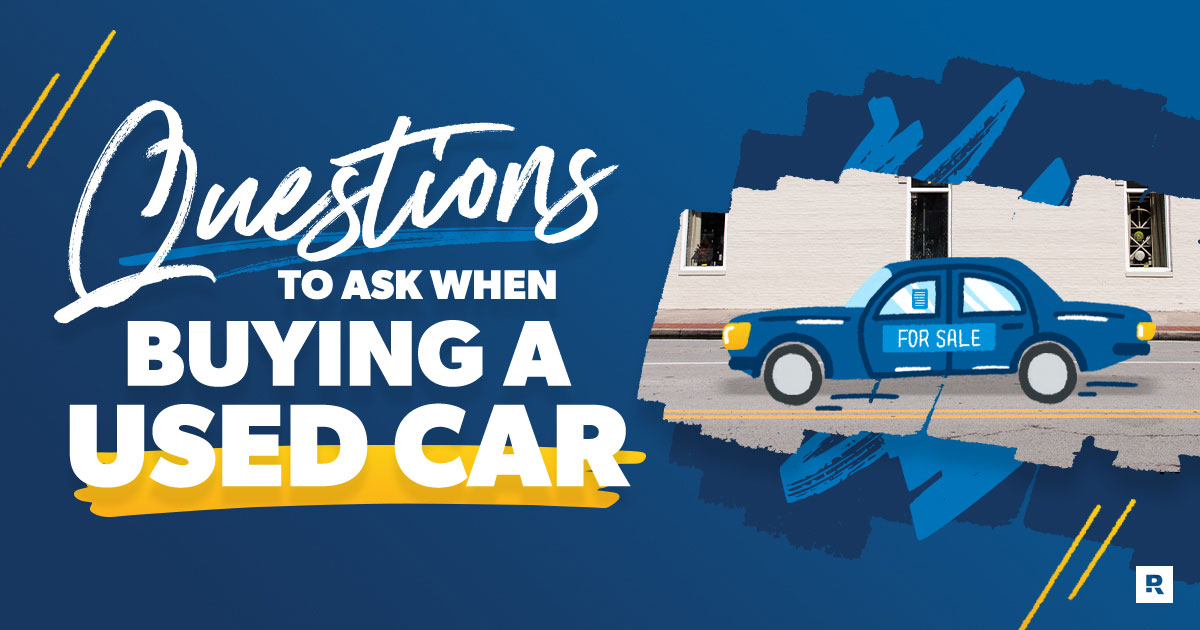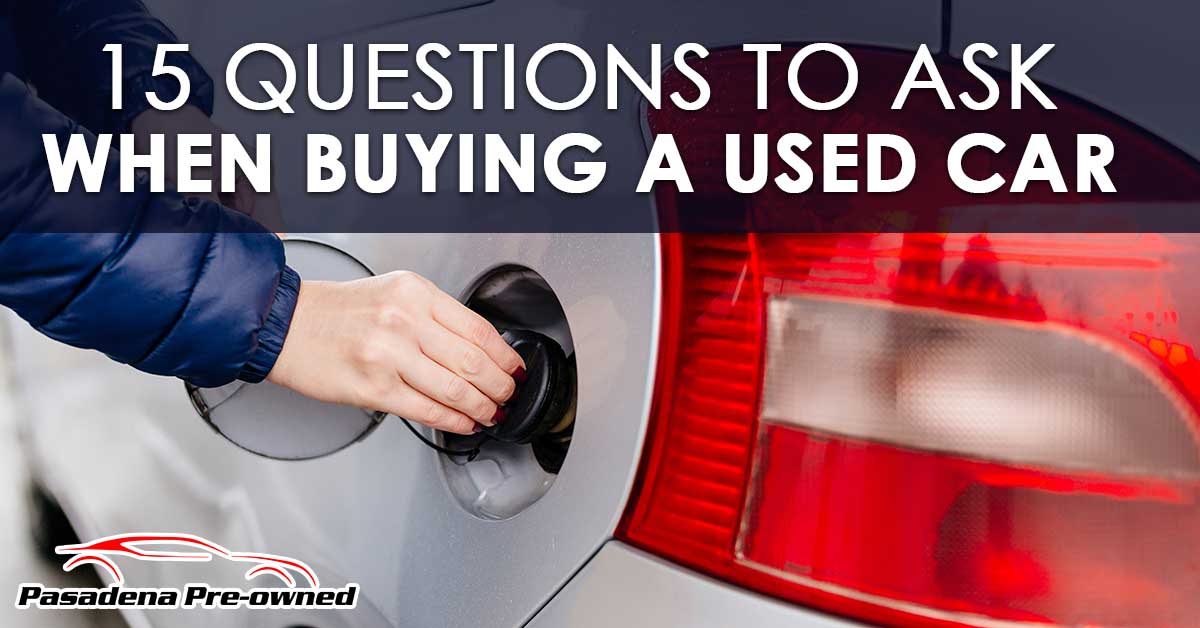When buying a used car, ask about the vehicle’s maintenance history and any previous accidents. These questions can help you make an informed decision.
Thinking about purchasing a used car can be an exciting yet overwhelming experience. Worried about what questions to ask when buying a used car? It is very important to aske right question to avoid any potential issues down the road. By being diligent and thorough in your inquiries, you can increase your chances of finding a reliable and suitable vehicle that meets your needs.
Let’s explore some essential questions to consider asking when buying a used car.
Contents
- 1 Evaluating The Vehicle’s History
- 2 Assessing The Car’s Condition
- 3 Finalizing The Purchase
- 4 Frequently Asked Questions
- 4.1 What Should I Consider Before Buying A Used Car?
- 4.2 How Can I Check The History Of A Used Car?
- 4.3 What Should I Look For During A Test Drive Of A Used Car?
- 4.4 Should I Get A Pre-purchase Inspection For A Used Car?
- 4.5 How Do I Negotiate The Price Of A Used Car?
- 4.6 What Documents Do I Need When Buying A Used Car?
- 5 Conclusion
Evaluating The Vehicle’s History
When buying a used car, evaluating the vehicle’s history is crucial to ensure that you are making a wise investment. By delving into the car’s past, you can gain valuable insights into its condition, maintenance, and potential issues. Here are some key aspects to consider when evaluating the vehicle’s history:
Checking Service Records
Reviewing the car’s service records can provide valuable information about its maintenance history. Look for regular servicing, including oil changes, tire rotations, and other routine maintenance tasks. This can give you an indication of how well the car has been cared for and whether any major repairs or issues have been addressed promptly.
Previous Ownership
Learning about the car’s previous owners can offer insights into how the vehicle was used and maintained. This can be particularly important if the car has had multiple owners in a short period, as it may indicate potential issues.
Look for details about how the car was driven, whether it was used for long commutes or city driving, and if it was regularly parked in a garage or left exposed to the elements.

Credit: www.ramseysolutions.com
Assessing The Car’s Condition
When assessing the condition of a used car, it’s crucial to conduct a thorough inspection and take it for a test drive to ensure that you’re making a sound investment. By asking the right questions and being observant, you can gain valuable insights into the overall state of the vehicle.
Conducting A Thorough Inspection
Before finalizing the purchase of a used car, it’s essential to carefully inspect various aspects of the vehicle to evaluate its condition. Here are some key areas to focus on:
- Exterior: Check for any signs of rust, dents, or scratches.
- Interior: Inspect the upholstery, dashboard, and controls for wear and tear.
- Engine: Look for oil leaks, unusual sounds, or excessive smoke from the exhaust.
- Undercarriage: Examine the undercarriage for signs of damage or corrosion.
- Electrical Components: Test the lights, air conditioning, and other electrical features.
Test Driving Essentials
Conducting a test drive is a critical step in the buying process, allowing you to assess the car’s performance and handling. During the test drive, pay attention to the following factors:
- Acceleration and Braking: Test the car’s acceleration and braking capabilities.
- Steering and Handling: Evaluate how the car responds to different road conditions.
- Noise Levels: Listen for any unusual noises coming from the engine, brakes, or suspension.
- Comfort and Visibility: Assess the comfort of the seats and the visibility from the driver’s position.
- Dashboard Indicators: Take note of any warning lights or error messages on the dashboard.
Finalizing The Purchase
When finalizing the purchase of a used car, there are several important aspects to consider. From negotiating the best deal to ensuring all necessary paperwork and documentation is in order, this stage requires attention to detail to ensure a smooth and successful transaction.
Negotiating The Best Deal
Negotiating the best deal is a crucial step in the process of buying a used car. Take the time to research the market value of the specific make and model you are interested in. Consider factors such as the car’s condition, mileage, and any additional features it may have.
Be prepared to walk away if the price is not within your budget, as this can give you leverage in the negotiation process.
Necessary Paperwork And Documentation
Before finalizing the purchase, ensure that all the necessary paperwork and documentation is in order. This includes the vehicle title, bill of sale, vehicle history report, and maintenance records.
Verify that the seller has the legal right to sell the car and that there are no outstanding liens or issues with the vehicle’s title.

Credit: www.pasadenapreowned.com
Frequently Asked Questions
Here are some FAQs about factors to consider before buying used cars –
What Should I Consider Before Buying A Used Car?
Before buying a used car, it’s important to consider factors such as the car’s condition, mileage, maintenance history, and whether it has a clean title.
How Can I Check The History Of A Used Car?
You can check the history of a used car by obtaining its vehicle identification number (VIN) and using online services like Carfax or AutoCheck to get a detailed report on the car’s accident history, ownership records, and more.
What Should I Look For During A Test Drive Of A Used Car?
During a test drive, pay attention to the car’s handling, braking, acceleration, and any unusual noises. Also, test all the features and controls to ensure they are in good working condition.
Should I Get A Pre-purchase Inspection For A Used Car?
Yes, getting a pre-purchase inspection is highly recommended. A professional mechanic can thoroughly inspect the car for any hidden issues or potential problems, giving you peace of mind before making the purchase.
How Do I Negotiate The Price Of A Used Car?
To negotiate the price of a used car, research its market value, be prepared to walk away if the price is not right, and use any issues or repairs as bargaining points. Remember, polite and respectful negotiation can often lead to a better deal.
What Documents Do I Need When Buying A Used Car?
When buying a used car, make sure to obtain the title, bill of sale, and any warranty documents. Additionally, don’t forget to check if the seller has all the necessary paperwork, including maintenance records and service history.
Conclusion
Purchasing a used car requires careful consideration and thorough questioning. By asking the right questions, you can ensure that you are making a wise investment and avoiding any potential issues. Remember to inquire about the vehicle’s history, maintenance records, and any potential red flags.
Additionally, make sure to test drive the car and have it inspected by a trusted mechanic. By following these steps, you can confidently make an informed decision when buying a used car.